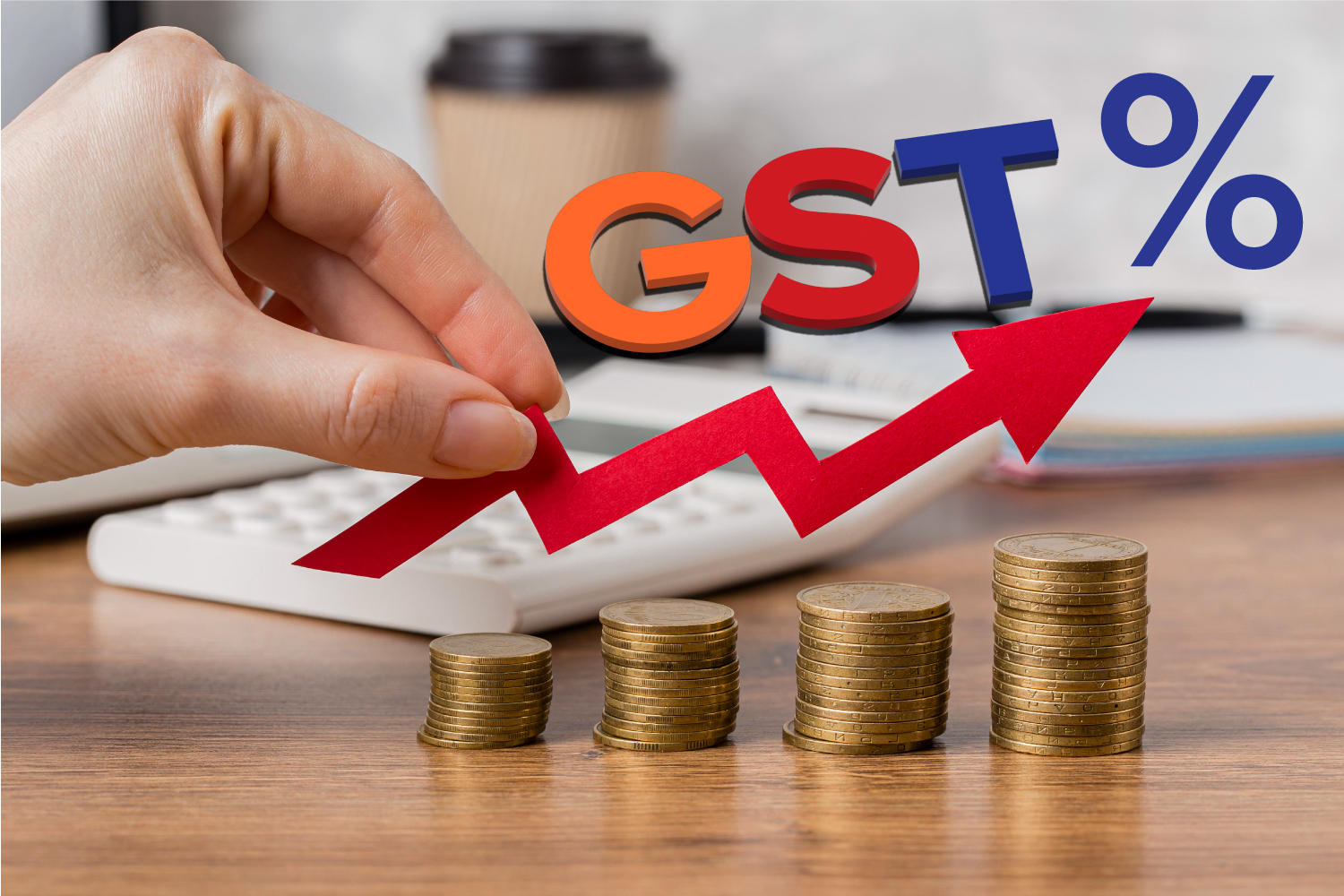
Source: Adda247
What is GST?
GST, short for Goods and Services Tax, is an indirect tax system implemented in many countries, including India, Australia, Canada, Malaysia, and Singapore. It is a comprehensive tax levied on the supply of goods and services at each stage of the production process, from manufacturing to final consumption.
Objective of GST
The main objective of GST is to create a unified tax structure, replacing various indirect taxes, such as excise duty, service tax, VAT, and others. It aims to simplify the tax system, promote transparency, eliminate cascading effect, and boost economic growth.
Components of GST
GST consists of two components:
- Central GST (CGST): Collected by the Central Government
- State GST (SGST): Collected by the State Government
In addition, there is an Integrated GST (IGST) which applies on inter-state supplies and is collected by the Central Government.
GST Slabs
Under GST, goods and services are classified into different slabs for taxation:
- 5%
- 12%
- 18%
- 28%
There are also certain goods and services that are exempted from GST, such as basic food items, healthcare services, educational services, and more.
GST Registration
Businesses exceeding the turnover threshold (varies by country) need to register under GST. Registration involves obtaining a unique GST Identification Number (GSTIN) and filing periodic returns with the tax authorities.
GST Returns
Under GST, registered businesses are required to file regular returns, including:
- GSTR-1: Details of outward supplies (sales)
- GSTR-2: Details of inward supplies (purchases)
- GSTR-3: Monthly summary return
- GSTR-9: Annual return
These returns provide information about the taxable transactions carried out by the business, which helps in the calculation of tax liability.
Advantages of GST
- Simplified tax structure and compliance
- Elimination of the cascading effect of taxes
- Promotion of seamless inter-state trade
- Increased tax revenue for the government
- Reduction in prices for consumers
Challenges of GST
- Initial implementation challenges and adaptation by businesses
- Complexity in determining the correct tax rate for goods and services
- Technology and IT infrastructure requirements
- Compliance burden for small businesses
In conclusion, GST is a comprehensive tax system aimed at simplifying the tax structure, promoting transparency, and boosting economic growth. It has both advantages and challenges, but its implementation has brought significant changes to the taxation system in various countries.
The Goods and Services Tax (GST) Council recently announced its decision to impose a 28% tax on online betting, effective from 1st October, marking a significant development in the taxation of the online gambling industry.
This decision comes as part of the Council's efforts to streamline tax rates and broaden the tax base, while also curbing the potential negative social impact of online betting platforms. The move is in line with the Council's aim to maintain a balanced taxation system for various sectors of the economy.
The GST Council, chaired by the Union Finance Minister, holds the authority to make decisions regarding GST rates, exemptions, and modifications. This decision has been taken after careful deliberation and evaluation of the potential revenue generation and impact on society.
The imposition of a 28% tax on online betting is expected to contribute significantly to the tax revenue of the government. This tax rate represents a higher rate compared to other forms of entertainment services which are taxed at a lower bracket. It reflects the Council's aim to ensure that the taxes charged on online betting are aligned with the potential risks and social concerns associated with this sector.
By imposing this tax, the Council aims to discourage excessive online betting and ensure responsible gambling practices. The taxation policy is designed to discourage individuals from engaging in online betting activities while generating revenue for the government at the same time.
It is important to note that this tax applies specifically to online betting activities and not to other forms of gambling such as lottery or physical casinos. The rise of online platforms, applications, and websites offering betting services has necessitated this differentiated tax treatment. These online platforms have gained popularity due to their convenience and ease of access, making it crucial to regulate and tax them appropriately.
The decision to impose a 28% tax on online betting aligns with the government's commitment to ensuring a fair and transparent taxation system. It also emphasizes the need for individuals and businesses involved in online betting to comply with tax regulations. By implementing this tax, the government aims to create a level playing field for all entities in the gambling industry, whether online or offline.
In conclusion, the decision of the GST Council to impose a 28% tax on online betting starting from 1st October is a significant step towards regulating the online gambling industry. This taxation policy is aimed at both curbing excessive online betting and generating revenue for the government. It also serves as a reminder to individuals and entities involved in online betting to comply with tax regulations and contribute to a fair and transparent taxation system.